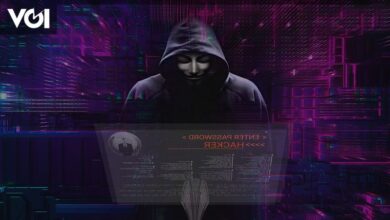Mumbai prepares to vote: Balancing ballots and cybersecurity becomes pivotal

As Mumbai’s election approaches, robust cybersecurity is crucial to protect the integrity of digital infrastructure amid increasing cyber threats.
Amidst the cacophony of political fervor, a surreptitious battle against cyber malfeasance looms, demanding vigilance and astute fortifications. As Mumbai gears up for its significant electoral event on May 20, 2024, the city’s atmosphere is electric .
With the voting process in 23 states and union territories already completed and a notable voter turnout of 69.16% in the fourth phase, the stakes are high for fifth phase. Political parties and leaders are intensifying their campaigns, rallying voters with catchy slogans and promises of a better future. However, as Mumbai prepares for its electoral milestone, another critical issue demands urgent attention: cybersecurity.
In an era where digital integration permeates every facet of our lives, the importance of robust cybersecurity measures cannot be overstated, especially during the Lok Sabha election. The annual Kaspersky Incident Response 2023 report has sounded a timely alarm, revealing a troubling increase in long-lasting cyberattacks. These attacks, persisting for over a month, constituted 21.85% of the total in 2023, a significant rise from the previous year. Particularly concerning is the exploitation of trusted relationships, which accounted for 6.78% of these attacks.
The timing of this cybersecurity warning could not be more critical. With the Mumbai’s Lok Sabha election approaching, the integrity of the digital infrastructure supporting the electoral process is paramount. The 2023 Kaspersky report highlights that the frequency of cyberattacks exploiting trusted relationships has increased. This trend is particularly alarming as it signifies that attackers are becoming more sophisticated, leveraging established trust to infiltrate systems and cause prolonged damage.
Anjali Amar, Vice President & Country Head, India and SAARC at Cloudflare, underscores the urgency of addressing these vulnerabilities. “India’s burgeoning digital community holds immense significance for the nation’s future. In such a scenario, ensuring cybersecurity measures are in place is paramount, especially in an election year,” she emphasizes. With over one billion Indians exercising their right to vote, the digital landscape becomes a fertile ground for potential cyber threats. Businesses, commerce, education, societies, and individuals are all susceptible to these attacks.
What needs to be done?
As Mumbai’s citizens prepare to cast their votes, it is crucial for all stakeholders – including organizations, governments, and societies – to recognize and address these digital vulnerabilities. Proactive measures must be taken to ensure the security of sensitive electoral data and the digital platforms facilitating the election process. This involves not only technological defenses but also educating the public on recognizing and mitigating cyber threats.
Amar’s call to action is clear: “Together, organizations, governments, and societies need to build a robust cybersecurity ecosystem, and ultimately keep cyber threats at bay for all stakeholders.” This collaborative approach is essential to safeguarding the integrity of the election and maintaining public trust in the democratic process.
Mumbai stands on the cusp of a pivotal electoral event, the parallel challenge of cybersecurity cannot be ignored. The convergence of political excitement and digital vigilance highlights a new dimension of modern elections. Ensuring a secure digital environment is not just a technical necessity but a fundamental component of protecting the democratic process. As voters head to the polls, let us also commit to bolstering our cybersecurity defenses, securing not only the future of our elections but the future of our nation.



